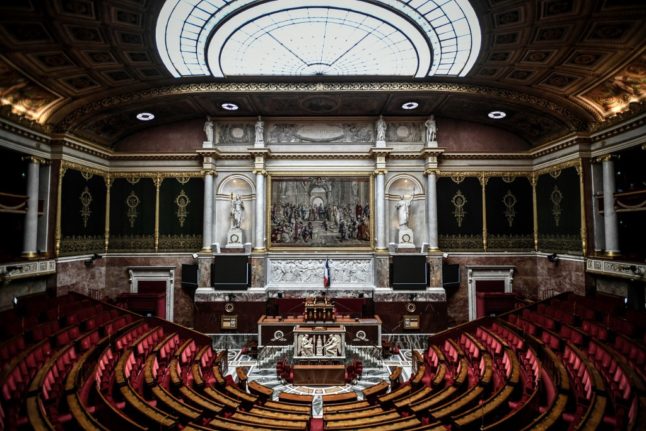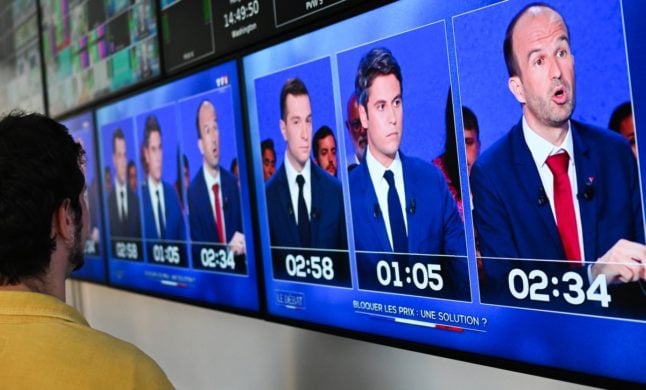The imminent parliamentary elections in France will see the country elect MPs to the Assemblée nationale – which is the lower house of the legislature (the equivalent to the House of Representatives in the US or the House of Commons in the UK).
These elections are important. MPs vote whether or not to approve laws proposed by the government. They can also propose laws of their own, amend legislation and set up investigative committees.
If Emmanuel Macron’s Renaissance party doesn’t win a majority of seats, the French President will struggle to push forward his legislative agenda of reforming pensions, cutting taxes and transforming the European Union.
Here are some of the key numbers you should know around the legislative elections:
577 MPs
Over the two rounds of voting, held on June 12th and June 19th, France will elect a total of 577 MPs to sit in the Assemblée nationale. A party needs to win 289 seats to hold a parliamentary majority.
Each MP represents a geographical constituency – or circonscription in French. 539 of these are in mainland France, 27 are in overseas territories and 11 are for French people living in non-French territories (French people living in the UK for example would vote for an MP to represent them as part of the ‘northern Europe constituency’ which also encompasses Norway, Sweden, Denmark, Iceland, Finland, Estonia, Latvia, Lithuania and Ireland).
Each constituency covers around 125,000 people in total.
6293 candidates
There are 6293 candidates running this year.
Among them are Prime Minister Élisabeth Borne, Interior Minister Gérald Darmanin and Damien Abad, the Disabilities Minister.
READ MORE Ministers, maids and ‘Wolverine’ – Who’s standing in France’s parliamentary elections
Last month the Presidency announced that any government minister who failed to win a seat would have to resign.
44 percent
Only 44 percent of the candidates are women. The law in France says that political parties are required to field gender-balanced lists of candidates – or face financial penalties.
Although the proportion of female candidates is higher than ever before, it is still insufficient.
In total, parties have been denied €2.25m in public funding this time around for failing to push forward equal numbers of men and women.
€37,400
Political parties receive €37,400 per year in public financing for every MP they get elected to the Assemblée nationale. This means that there is both a political and economic incentive for political parties to win as many seats as possible.
Over the course of the five years in between parliamentary elections, a party with 20 MPs can rake in €3.74 million.
Even parties that don’t eventually win seats still receive some public financing – €1.64 per vote – as long as they managed to win at least 1 percent of the vote in at least 50 constituencies.
As the largest party in the current Assemblée nationale, La République en Marche (renamed Renaissance) has received close to €20million in public funding every year.
4
In a bid to overturn Macron’s majority, four left-wing parties have combined into a coalition known as Nupes – La Nouvelle Union populaire écologique et sociale.
It is made up of the France Unbowed Party, the Europe Ecology – the Greens Party, the Communist Party and the Socialist Party.
€7239.91
Compared to other parliamentarians around the world, French MPs are paid a staggering amount.
The basic salary of a French MP is €7239.91 per month, pre-tax.
On top of this, they are paid an advance of €5,373 to cover parliamentary expenses over five years; a €1,200 subsidy to cover accommodation costs when they come to Paris; more than €10,500 to pay assistants; and an annual payment of more than €20,000 to cover IT costs and taxi journeys.
When an MP is eventually voted out of office, they receive monthly payments of €3,191 (pre-tax) for six months to help them readjust to normal life. After six months, these payments begin to gradually decrease.




 Please whitelist us to continue reading.
Please whitelist us to continue reading.
Member comments